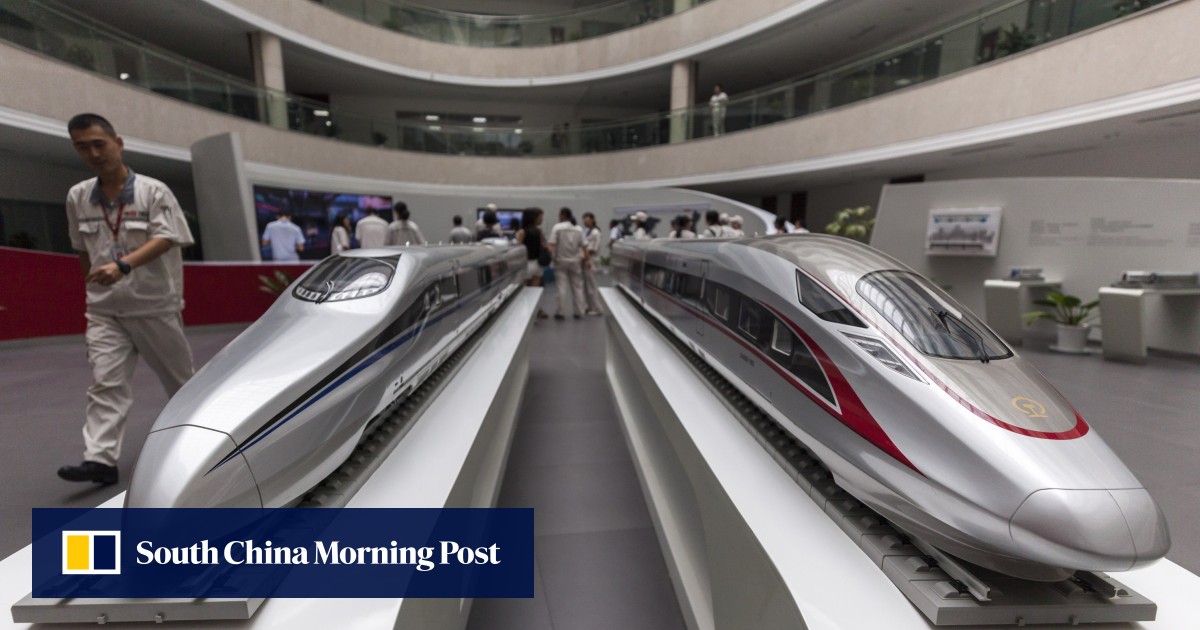Per the regulation, companies are “obliged” to provide notification for any public procurement tenders with a contract value of more than €250 million.
CRRC Qingdao Sifang submitted its notice in full on January 22. The regulation has a statutory mandate of 110 days to deliver a result, meaning the verdict will be known no later than July 2. The strictest consequences under the terms of the regulation would bar the company from fulfilling the contract.
“The EU has a clear direction of setting up rules … to protect its own competitive edge and ensure economic safety,” said Cui Hongjian, a scholar at the China Institute for International Studies.
“Both sides will have some back-and-forth bargaining. They will discuss, negotiate – even go into legal proceedings.”
China and the EU, historically major trading partners, are undergoing changes in their relationship as the bloc attempts to limit its reliance on Beijing.
[China] will feel the need to respond in kind to any measures taken by the EU, but … it wants to foster closer trade relations
Europe’s back-to-back investigations are also happening in a politically charged environment, with this year’s elections for the European Parliament and the White House likely to motivate candidates to take a critical stance on engagement.
As China-EU ‘de-risking’ voices crescendo, why the focus on electric cars?
As China-EU ‘de-risking’ voices crescendo, why the focus on electric cars?
Stephen Olson, a senior adjunct fellow at the Pacific Forum and visiting lecturer at the Yeutter Institute of International Trade, said that the EU and China will continue to be close trading partners for “the foreseeable future” but China will have to “walk a delicate tightrope”.
“[China] will feel the need to respond in kind to any measures taken by the EU, but at the same time, it wants to foster closer trade relations as a bulwark against the EU’s trade policies aligning too closely with those of the US,” he added.
Figures from China’s General Administration of Customs showed that total imports and exports between China and the EU decreased 7.6 per cent to US$782.9 billion in 2023, a contrast to the 2.4 per cent yearly growth to US$847.3 billion recorded in 2022.
“The relatively distant bilateral trade relationship between both sides isn’t due to the investigations, even though China-EU trade recorded constant growth before 2022,” said Ding Chun, director of Fudan University’s Centre for European Studies.
“Since 2016, the EU started rolling out a series of restrictive trade and investment measures towards China related to foreign subsidies and de-risking, which led to an abnormal drop of trade figures last year.”
In a response statement issued on Friday, the China Chamber of Commerce to the EU (CCCEU) said that any adoption and application of policy tools “should avoid having a discriminative impact towards foreign companies.”
“Throughout the EU legislative process of the Foreign Subsidies Regulation and its Implementing Regulation, the CCCEU actively participated in public consultations on the draft legislation and the draft implementation rules multiple times,” the statement read.
To clear up contradictions with facts, China should cooperate in the probe
The business group also noted that it has provided feedback to the European Commission and the EU legislative bodies in several forms, and expressed member companies’ concerns about what it termed unreasonable reporting obligations imposed after the application of the regulation.
Dong Jinyue, a senior economist at BBVA Research, said that it will be a “lose-lose scenario for the EU” if the bloc mirrors the aggressive stance of the US.
“The current main conflict of the international relationship is the China-US competition … The main strategy of the EU is ‘not to take sides’ and to seek its own economic development, as the intrinsic risk of the EU economy is almost zero growth, if not recession,” she added.
Shen Dingli, an international relations scholar based in Shanghai, added that there are many avenues to resolving a dispute, such as the World Trade Organization.
“No matter which way both sides take, the precondition for the EU is to launch a fair inspection that can clarify differences,” he said.
“To clear up contradictions with facts, China should cooperate in the probe [to] help develop better opportunities for bilateral trade and investment.”



